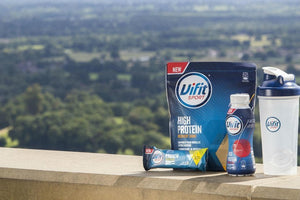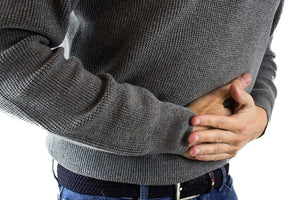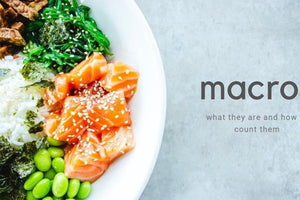
We live in an age where food wastage is unprecedented and the modern conveniences of pre-packaged foods combined with ever shortening expiry dates means we throw away and waste a third of all food produced worldwide. Take a look at how you can eat healthily and cut back on waste, two things very close to our hearts here at Sundried.
Be savvy with expiry dates
Unfortunately, for those trying to stick to healthy eating it's the fresh fruits and vegetables which expire the quickest while the artificial junk food lasts for months or even years thanks to its many additives. However, it's important to be savvy when it comes to expiration dates so that you don't waste food for no reason.
Many foods have 'sell by' dates as well as 'use by' dates. The sell by date is simply a marker for the supermarket or store and you don't need to throw away the food by this date. Even some expiration dates can be taken with a pinch of salt as the food will last a lot longer, especially if refrigerated in some cases. You can also freeze foods which are close to their expiration dates to help them last longer.
Of course, with foods like meat and fish you should exercise caution as rotten meat can make you very ill. However, fresh fruit and vegetables will often last a lot longer than their expiration dates indicate and you can use common sense to decide if the food is still edible, for example by looking out for mould. Some UK supermarkets like Lidl don't even include use by dates on their fruit and it's down to you to decide if it's still okay to eat.
More processed products like bread, bagels, and wraps often last a lot longer than their expiration dates may say as they often have additives to lengthen their shelf life. Unless there is mould growing on your bread, you should be okay to eat it even if it's past the use by date.
Tip to reduce food waste: Don't throw away food simply because it's close to, on, or past its expiration date.

Use your common sense to decide when a food is past its best rather than sticking rigidly to expiry dates
Avoid pre-packaged foods
Enter any supermarket and the closest aisles to the door are always stocked with pre-packaged food. Shops are now selling more convenience foods than ever, with inventions like packaged smashed avocado and stir fry kits with ready-chopped vegetables.
Many of these packaged foods are more expensive than their wholefood counterparts because you are paying for convenience. But do you really need to buy smashed avocado in a plastic packet? Can't you just buy a whole, fresh avocado with no packaging whatsoever and smash it yourself?
These pre-packaged foods are adding single-use plastic unnecessarily and causing a lot of damage to the planet as well as being more costly to you as the consumer. Avoid them at all costs and stick to the real thing.
Tip to reduce waste: Always choose fresh, whole foods and don't put them into single-use plastic bags – they have their own natural packaging in the form of skin!

Why buy avocado in a wasteful plastic packet when an avocado comes in its own natural, biodegradable skin?
Make use of leftovers
A lot of food waste is created when we buy or cook too much and then throw away what we can't eat. Instead of making huge portions according to a recipe and then throwing away what you can't eat, you can save the leftovers to have for lunch or dinner the next day or even for the rest of the week, especially if you freeze them.
Planning your meals for the week ahead is a great way not only to reduce food waste but also to improve your health. By having a meal plan in place, you are less likely to just grab a ready meal or order a takeaway and you can make sure you have the right ingredients in the right quantities from your weekly shop for your meals.
Tip to reduce waste: Plan your meals at the beginning of the week and use leftovers for lunch or dinner the next day.

Knowing what meals you're going to have throughout the week means you can buy only what you need without wasting any, saving money as well as food waste.
Make use of store cupboard staples and canned food
It's something many of us are guilty of doing at one time or another: you grab a plastic bag of pre-packaged lettuce from the supermarket with the intention of eating healthier and making salads for lunch, you never eat it and instead it's left to wilt in the fridge, then you eventually throw away the slimy remains at the end of the week. Is this something you can relate to?
You need to be realistic with your meal plans and make use of food that can sit in your cupboard until you need it. Many of the most healthy foods available will last a long time; foods like rice, pasta, quinoa, lentils, nuts, seeds, oats... the list goes on. Other healthy foods such as beans, peas, and chickpeas can be bought in cans and will also last months if not years in your cupboard. Try finding recipes that use the ingredients you have in the cupboard instead of buying things you don't need and then wasting them.
Tip to reduce waste: Stock your cupboards with healthy dry and canned goods instead of constantly buying fresh food which goes off before you get a chance to use it.








